
The city of Pompeii was part of a thriving coastal region when it was destroyed by the a.d. 79 eruption of Mount Vesuvius. Entire farms, villages, and grand private estates on the Bay of Naples were buried under a thick layer of ash and debris. Among them were luxurious villas built by some of Rome’s most prominent families in the town of Oplontis, which is located in the modern city of Torre Annunziata, three miles west of Pompeii. The best preserved and most thoroughly studied of these is called Villa A, or Villa Poppaea. The 75,000-square-foot property is named for the second wife of the Roman emperor Nero (r. a.d. 54–68), Poppaea Sabina, who may have once owned it. Built around 50 b.c. on a high bluff looking out to sea—but now below the modern street level—the villa contains wall paintings depicting fantastical architecture and has been the site of pioneering work in garden archaeology
Denne historien er fra January/February 2022-utgaven av Archaeology.
Start din 7-dagers gratis prøveperiode på Magzter GOLD for å få tilgang til tusenvis av utvalgte premiumhistorier og 9000+ magasiner og aviser.
Allerede abonnent ? Logg på
Denne historien er fra January/February 2022-utgaven av Archaeology.
Start din 7-dagers gratis prøveperiode på Magzter GOLD for å få tilgang til tusenvis av utvalgte premiumhistorier og 9000+ magasiner og aviser.
Allerede abonnent? Logg på
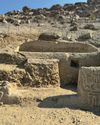
ORIGINS OF PERUVIAN RELIGION
While investigating looters' holes at the site of La Otra Banda in northern Peru's Zaña Valley, archaeologist Luis A. Muro Ynoñán of the Field Museum and the Pontifical Catholic University of Peru spotted carved blocks around seven feet below the surface.
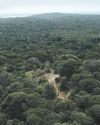
ISLAND OF FREEDOM
Many of the enslaved Africans sent to Brazil beginning in 1549 were from what is now Angola, where one of the most widely spoken languages was Kimbundu.
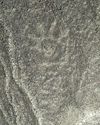
NAZCA GHOST GLYPHS
From the 1940s to the early 2000s, geoglyphs were discovered in the Nazca Desert of southern Peru depicting animals, humans, and other figures at the rate of 1.5 per year.

COLONIAL COMPANIONS
The ancestry of dogs in seventeenth-century Jamestown offers a window into social dynamics between Indigenous people and early colonists.
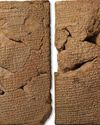
BAD MOON RISING
The British Museum houses around 130,000 clay tablets from ancient Mesopotamia written in cuneiform script between 3200 B.C. and the first century A.D.
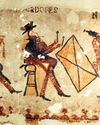
DANCING DAYS OF THE MAYA
In the mountains of Guatemala, murals depict elaborate performances combining Catholic and Indigenous traditions
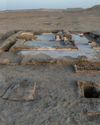
LOST GREEK TRAGEDIES REVIVED
How a scholar discovered passages from a great Athenian playwright on a discarded papyrus

Medieval England's Coveted Cargo
Archaeologists dive on a ship laden with marble bound for the kingdom's grandest cathedrals
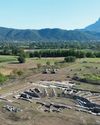
Unearthing a Forgotten Roman Town
A stretch of Italian farmland concealed one of the small cities that powered the empire
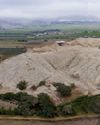
TOP 10 DISCOVERIES OF 2024
ARCHAEOLOGY magazine reveals the year's most exciting finds